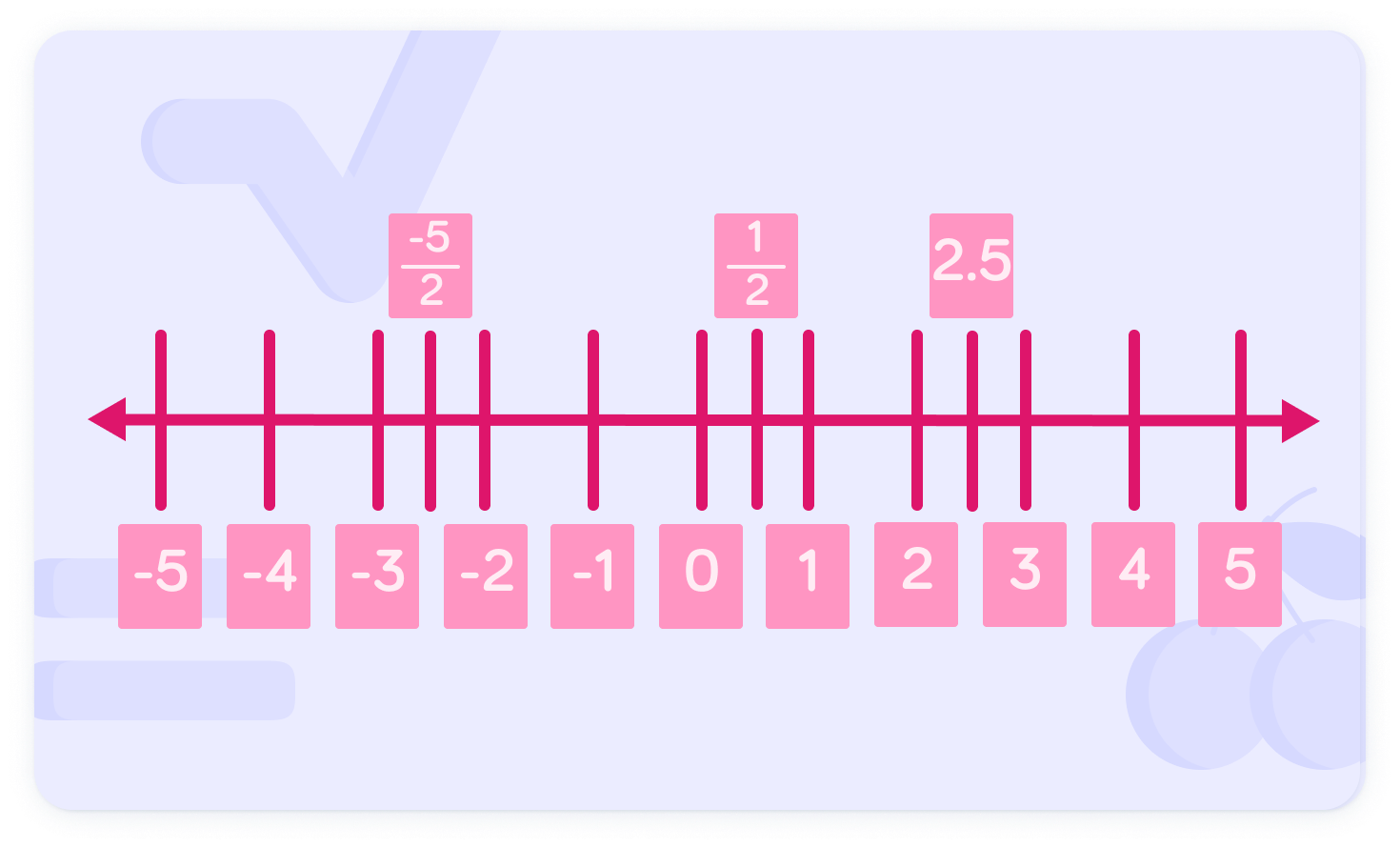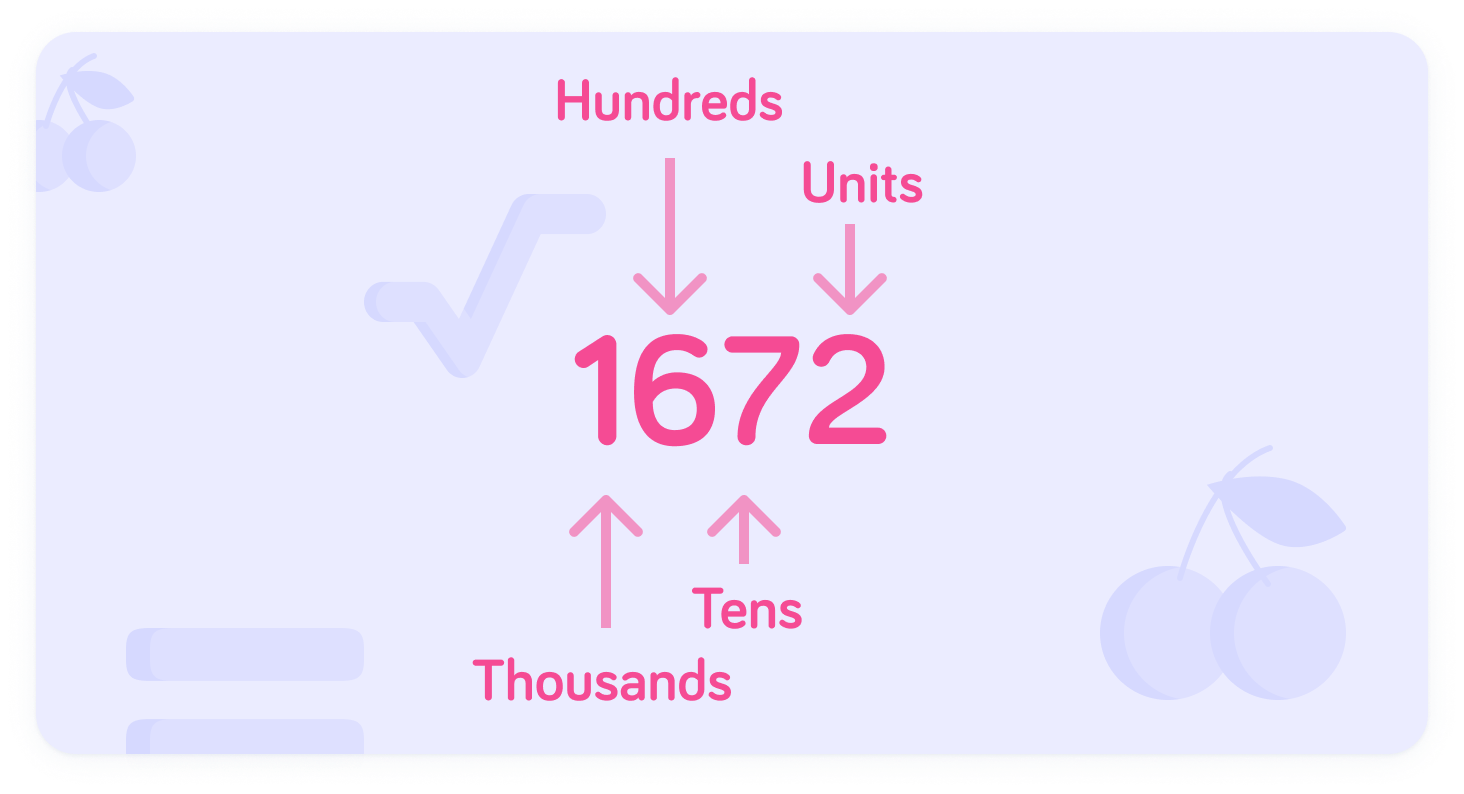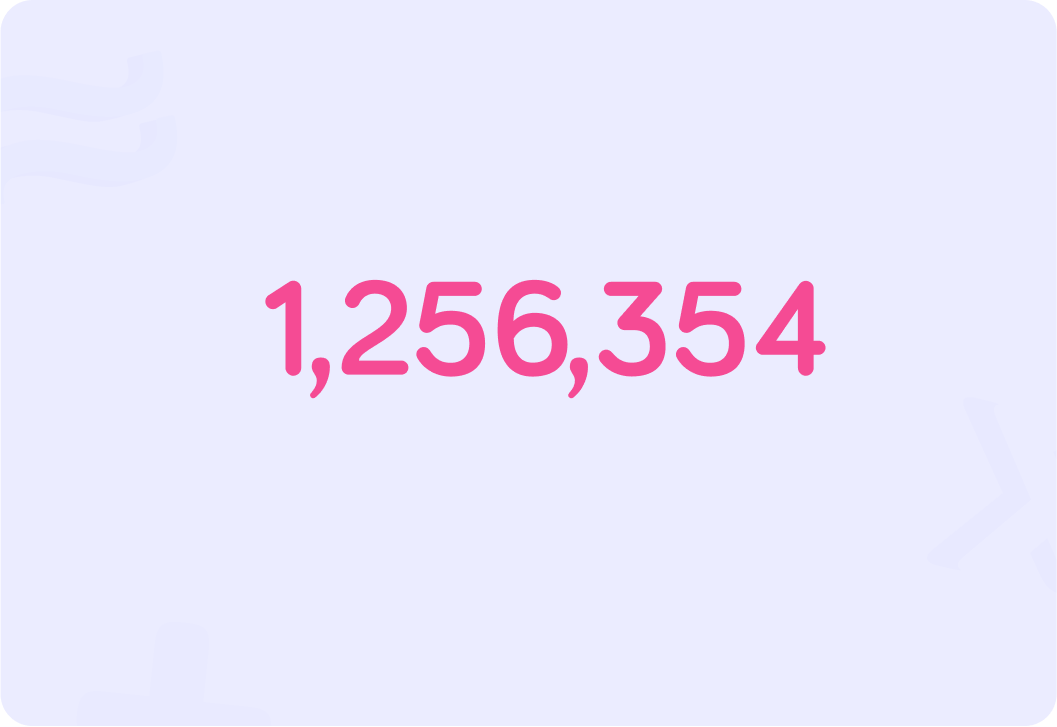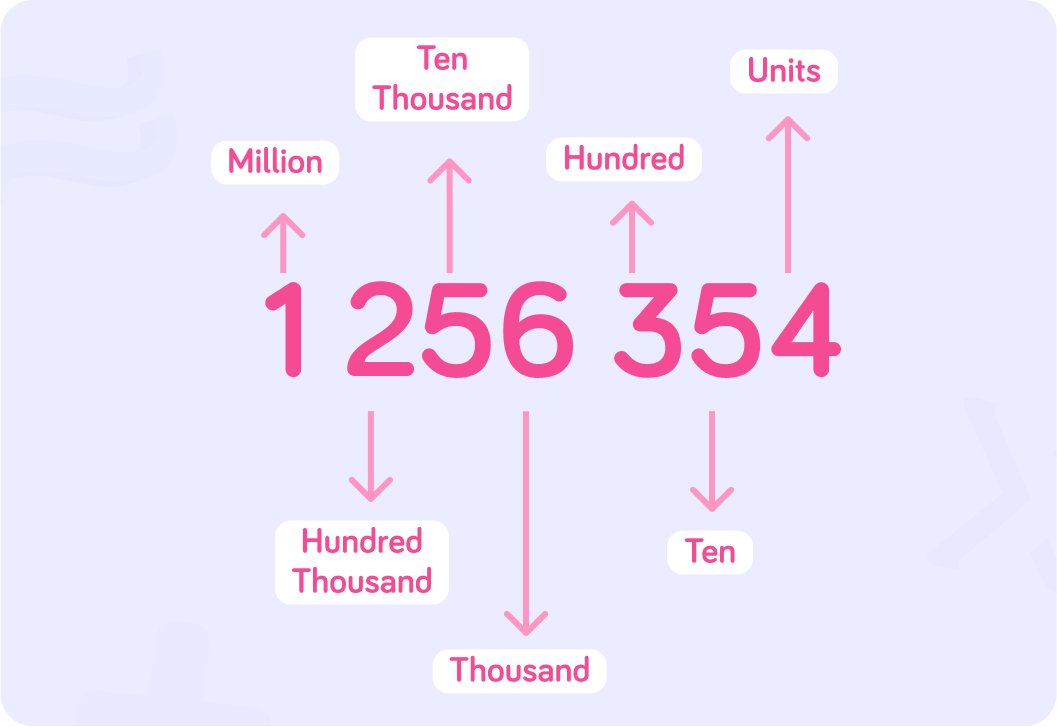YOU ARE LEARNING:
Integers and Place Values

Integers and Place Values
Integers can be positive, negative or zero. You use place value to compare and order integers.
Integers play an important part in maths. What type of number is an integer?

Integers are whole numbers. They can be used to count things and don't have a decimal part.
All the numbers on this number line are integers.

And what do you think is the highest integer in the world?

So integers can be infinitely positive or infinitely negative.
That is what the arrows at either end of the line show. They say: "Continue forever."

True or false? The number -5 is a negative number?


True or false? The number 5 is also a negative number?


But what about 0? How can we describe that?


So integers can be positive, negative or zero.
The negative numbers, like -3, are to the left of 0 The positive numbers, like 3, are to the right of 0
0 is neither negative nor positive.

Four of these are true statements about integers. Pick all 4 correct statements.

You can select multiple answers
Pick the 3 numbers in this list that are integers.

You can select multiple answers
Place values organise numbers so we can identify their value and put them in order.
It also helps us write a number in figures when we hear someone say it.
The different individual digits in an integer stand for different values
For example, the digit 6 in 1,672 is in the hundreds place, so it's "worth" 600

How much is the digit 7 worth in 1,672?


How much is the digit 1 worth in 1,672?


The different digits have different "place values". The units have the smallest value and are always on the right of the number.
The digit 1 has place value 1,000 so it's worth 1,000 The digit 6 has place value 100 so it's worth 600 The digit 7 has place value 10 so it's worth 70 The digit 2 has place value 1,000 so it's worth 1,000

How much is the digit 2 worth in the integer 923?

How much is the digit 7 worth in the integer -8,497?

2,496 is the same as...

Pick the highest integer in this list.

Pick the highest integer in this list.

We have used place value to determine what a number is and seen place values up to thousands.
But there are numbers much bigger than this.
Large numbers can sometimes be a bit daunting. Look at this number - how would say it in words?


This number is one million two hundred and fifty six thousand three hundred and fifty four.
That's a lot to write and using figures makes it neater.

With large numbers we often separate groups of three digits (starting from the right) with a comma
This breaks the number up and makes it easier to read, say and write. Remember that 1,256,354 and 1256354 are the same number.

How much is the digit 2 worth in 1,256,354?


Large numbers can be tricky.
Using place values helps us to make sense of them.

To summarise! Integers are whole numbers
They can be positive, negative or zero.

The digits in an integer have different place values.
For example, the digit 6 in the integer 1,672 has place value hundreds, so it's worth 600

To work out which integer is higher, you check which number has digits at the highest place value and which of those digits is bigger.
1,672 is higher than 672 because it has thousands. 672 is higher than 472 because it has 6 hundreds, not just 4 hundreds.

